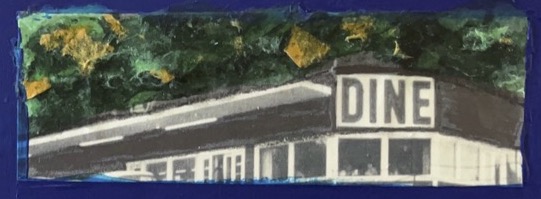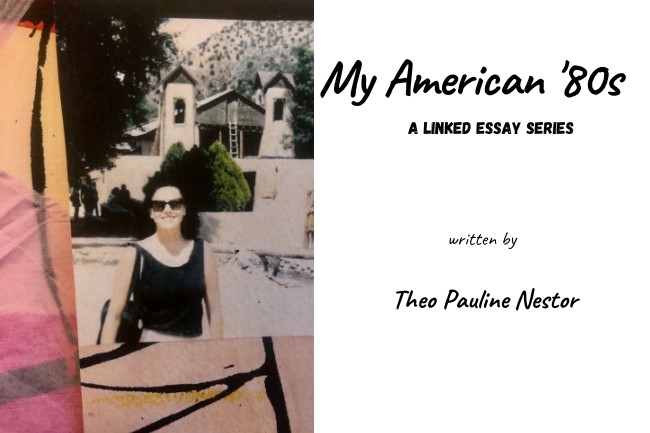
Hello Readers!
I’ve been waiting for this day–the publication day for Reagan Jackson’s Still True: The Evolution of an Unexpected Journalist–to share my enthusiasm not for just this book but general Reagan’s ability to dismantle the insanity of the existing world and her quiet insistence that joy and liberation are reasonable goals. Reagan walks through the streets we’ve walked down and those we haven’t and tells us friend-to-friend what we’ve seen and what we’ve missed. It’s a rare gift–and one we all get to enjoy together as Still True is available for purchase at booksellers everywhere today.
I had the chance to ask Reagan some questions about the writing of this essays that built this book. As usual, she went deep. Here’s a quick excerpt and you can read the rest of the interview below:
“Throughout my career I’ve had to decide over and over again that I am worth being heard. What I write and how I write might seem foreign or unrecognizable as journalism, but in choosing to write from a place of authenticity and a deep love of my community I am bringing a much-needed intervention to the myth that objectivity is possible. Through my work I am saying with my chest that you have to be real about who you are in order to even tell the truth.”
Reagan E. J. Jackson

Theo Nestor: Tell us a bit about Still True!
Reagan Jackson: Still True is a hybrid book. It begins with a short memoir piece about my unexpected journey into journalism and the choices I made around what to cover and why. The rest is a collection of essays and articles spanning a decade. It’s a time capsule, but the topics covered remain relevant from gentrification to globalization to movement building around viral Black death and Black joy. This is a book that forces readers to think deeply about what they hold as true and why.
Theo Nestor: If you had to be remembered for just one story from this book, which one would it be and why?
Reagan Jackson: This question is soooo hard and I think I would give a different answer on a different day, but today I would say The Tea on our Juneteenth Black Out and the Necessity of Black Healing Spaces. On Juneteenth 2020, Mary Hall Williams and I staged a protest within a protest. We hosted a 12-hour Blackout on Cal Anderson Field in the center of the Capitol Hill Occupied Protest, which was an internationally covered Black Lives Matter Protest. Most journalists don’t often become the story, but we were that day and I was so deeply irritated by the reductive and in some cases just negligent and unintelligent coverage about what we did and why that I felt forced to write a piece just so that people could actually hear some nuance. This event, which was registered as an official protest in solidarity with the Movement for Black Lives, was instrumental in popularizing a movement across King County and beyond to center Black grief during a time a viral Black death. It helped to spotlight the need for healing in a way that created space for us to prioritize the fullness of our humanity, not just our rage. I learned so much that day and at a great personal expense. So I hope folks read it and talk about it.
Theo Nestor: Of all the places you’ve travelled, where do you want to go back to and why?
Reagan Jackson: Spain. I want to go back because I never wanted to leave. When I was a junior at UW I spent a year abroad in Cadiz, Spain studying Spanish at la facultad de filofia y letras at the University of Cadiz. I don’t necessarily want to live in Cadiz again. It was a lovely sleepy little beach town that was perfect for that moment in my life, but I think I might love living in Madrid.
When I think about the pace of my life now, I feel Spain calling me into a more peaceful way of being. Long walks down cobblestone streets, sit down meals with people I love, and dry humor delivered in that signature Spanish accent. Spain was the perfect fit to my bio rhythms. I loved taking siestas and the pace of life. I also met wonderful people and ate delicious food and sipped sangria by the beach. It was a vibe.
Theo Nestor: What’s a challenge you’ve had to overcome in writing and publishing this book?
Reagan Jackson: Imposter syndrome. I was an unexpected journalist not because others didn’t see me as qualified, but because I didn’t see a place for myself or my voice in the field. Even after I was offered a column and given the validation of having some of my work go viral, I still didn’t feel like a “real journalist” so how could I possibly publish a book of articles? Throughout my career I’ve had to decide over and over again that I am worth being heard. What I write and how I write might seem foreign or unrecognizable as journalism, but in choosing to write from a place of authenticity and a deep love of my community I am bringing a much-needed intervention to the myth that objectivity is possible. Through my work I am saying with my chest that you have to be real about who you are in order to even tell the truth. Truth telling is the purest form of journalism and I am real AF in all I do. Choosing to write and publish this book required me to level up my self-worth and self-respect in order to take the leap.
Theo Nestor: Where can we find out about your book events?
Reagan Jackson: Follow me on Instagram @reaganejjackson and also check out these two websites: www.reaganjackson.com and https://www.hintonpublishing.com/





Leave a Reply